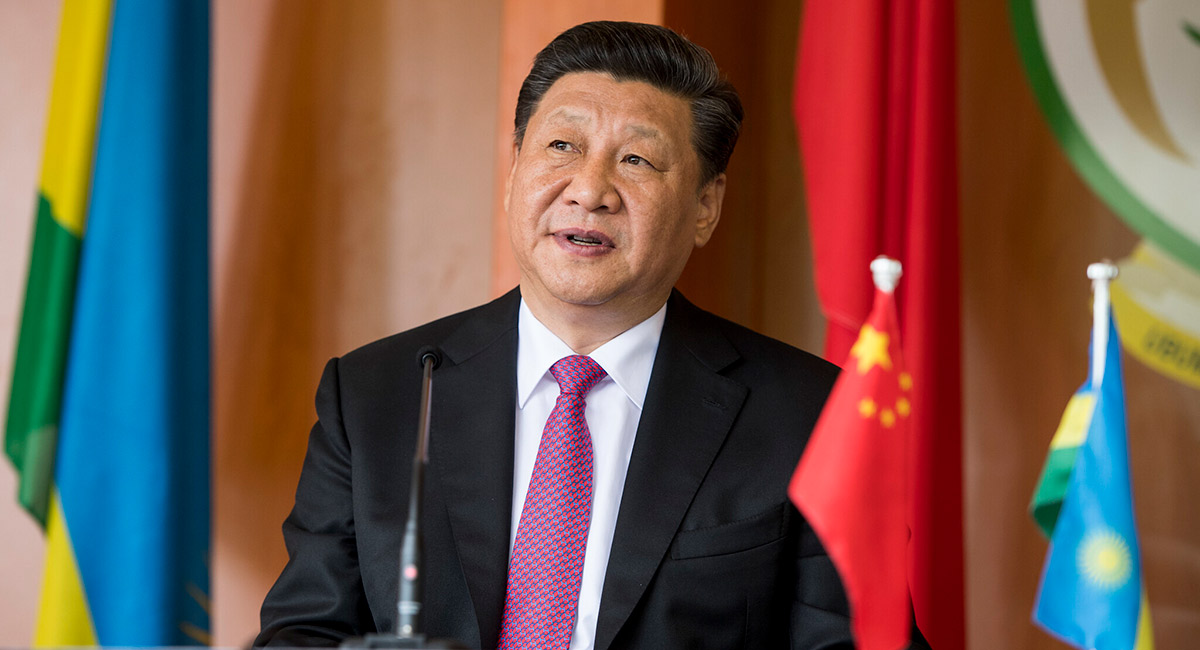The U.S. imperial-industrial complex is at it again.
From the early 1970s until the Cold War with the Soviet Union ended, the United States did not think China was so bad. In 1971, President Richard Nixon undertook a diplomatic opening to China, and in the late 1970s President Jimmy Carter finished a lagging effort. Nixon had made the opening in an adroit move to improve relations with a weaker but more radical communist China, led by Mao Zedong, as a counter to the staid but more powerful Soviet Union. During the Carter administration, Deng Xiaoping, China’s new leader after Mao died, began to free up the creaking communist economy by allowing limited capitalism. Under that enlightened policy, Chinese economic growth soared, catapulting China into one of the two largest economies on the planet.
Yet after the Cold War with the Soviet Union ended and the USSR was clearly much less threatening to Europe and around the world, almost on cue, U.S. elites’ suspicions began to arise about China, beginning with its suppression of democratic forces in Tiananmen Square in 1989. Yet Deng never professed to have a democratic bone in his body and wanted to avoid the failed Soviet model of reform by concentrating on partially freeing up the Chinese economy while eschewing more dangerous political reforms. Thus, China became a committee-ruled authoritarian state with a vibrant private economic sector propping up chronically underperforming state-owned industries held over from the communist days.
Typical of many powers with rising economies (including the United States in the late 1800s), China has become militarily more assertive, especially in nearby areas. Also, the Chinese have attempted to win “influence” more widely by trade and investment in other nations’ infrastructure—that is, China’s “belt and road” initiative. Much of these recent trends have occurred under Xi Jinping, who since his rise to power in 2012, has taken the country back to one-man rule comparable to that of Mao and has been substantially tightening control over the private sector economy.
The imperial-industrial complex in the United States needs an enemy, and the autocratically communist redux of the Xi regime has conveniently arisen to fill the gap created by the defunct Soviet Union and the interregnum threat from terrorism after 9/11. An economically stronger China from the late 1970s until 2012 increased global commercial competition, which was good for the world’s consumers and made US corporations stronger as well. However, it also allowed China to spend more on its military. Although China still spends only about a third of what the United States spends on defense, the U.S. imperial-industrial complex is working feverishly to make China out to be a new USSR.
Yet China’s global strategy is still economically heavy and is likely to be very wasteful. Building infrastructure around the world may obtain “influence” (whatever that means) in other nations, but it is also likely to be expensive and build boondoggles that also create debt traps for many countries, thus creating a resentful backlash too. In short, China’s entire effort to gain influence may be a giant waste of time and money.
In addition to an aging population, economic inefficiency induced by a dearth of market information in a restricted political system, and problems with ethnic minorities in Tibet and Xinjiang, China’s worst problem is Xi’s creeping re-socialization of China’s economy. Zombie state-owned banks lend money to zombie state-owned corporations. Certain private firms get preferential treatment from the government. Like the bad old days, communist party hacks are being planted at the top levels of private companies, thus politicizing business decisions. Corporate executives, who are alternative power centers to Xi and the communist party, are being fired or extorted for money. In short, party and state re-regulation of the economy will likely significantly slow economic growth rates and limit China’s power, just as they did with the Soviet Union. China’s economic stagnation from overregulation may be even worse than that of Japan, which began in the 1990s.
Economic power underlies all other indices of national power—for example, military, diplomatic, and cultural power. Given a slowing Chinese economy resulting from internal weaknesses, Americans should not let the U.S. imperial-industrial complex exaggerate what threat China poses to U.S. security.

















